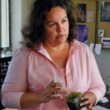Entangled life: how fungi make our worlds, change our minds & shape our futures
Description
More Details
9780593209813
9780525510338
9780525510321
Excerpt
Similar Titles From NoveList
Similar Authors From NoveList
Published Reviews
Booklist Review
For many folks, fungus ranks near the top of their "Ick" scale of disgust: the mold and mildew in the shower, ringworm, yeast infection, rotting wood. But fungi--a group of organisms that includes molds, yeast, and mushrooms--are also beneficial to people as a source of important pharmaceuticals (antibiotics, anticancer compounds) and integral to bread making and fermenting wine and cheese. In this masterful work about mycology, biologist Sheldrake describes fungi as "regenerators, recyclers, and networkers that stitch worlds together." The introduction, "What Is It Like to Be a Fungus?", brilliantly sets forth just how amazing and mostly out of sight fungi are: "They are eating rock, making soil, digesting pollutants, nourishing and killing plants, surviving in space, inducing visions, producing food, making medicines, manipulating animal behavior, and influencing the composition of the earth's atmosphere." Millions of fungal species exist (6 to 10 times the number of plant species), and they're "prodigious decomposers." Some species threaten human health (like the veritable fungal superbug Candida auris), and another species threatens extinction for the beloved Cavendish banana. Chapters address how fungi feed and grow, their partnership with plants, mycelial networks, lichens, mushrooms, symbiosis, and forest ecosystems. "Fungi make worlds; they also unmake them," Sheldrake writes. A superb science book about a ubiquitous yet vastly underappreciated life form.
Publisher's Weekly Review
Scientist Sheldrake debuts with a revelatory look at fungi that proves their relevance to humans goes far beyond their uses in cooking. While fungi lack brains, they can process and share complicated information about food and the habitability of environments quickly and over great distances, influencing the "speed and direction of growth," in ways not yet understood, prompting Sheldrake to ask, "Can we think of their behavior as intelligent?" By discussing how fungi come together with algae to form lichens, Sheldrake touches on another question, that of "where one organism stops and another begins" in symbiotic relationships. Elsewhere, he explains how fungi were essential for the original colonization of land by plants, as they effectively served as roots for the first rootless arrivals. Meanwhile, anthropologists have postulated that, via the fermentation process, fungi may have sparked one of humankind's key transitions: "from hunter-gatherers to agriculturalists." Looking to the future, Sheldrake discusses developing uses of fungi in shipping, construction, and environmental remediation materials. In bringing all these diverse threads together, Sheldrake delivers a thoroughly enjoyable paean to a wholly different kingdom of life. Agent: Jessica Woollard, David Higham Assoc. (May)
Library Journal Review
Biologist Sheldrake's first book is a fascinating account of how fungi have been an integral component of human existence. From penicillin to truffles to the fermentation process that gives us alcoholic beverages, fungi are ubiquitous. Sheldrake takes readers on journey drawn from his research as a biologist at the Smithsonian Tropical Research Institute studying the plant voyria, which uses fungal relationships to produce energy. Through chapters on truffle hunting, psychedelics, and the necessary symbiosis between 90 percent of plant species and mycorrhizal fungi, readers will learn how entangled our lives are with fungi. Many now know of the Wood Wide Web, the network of underground mycorrhizal fungi that allow trees to share nutrients and pass information, and Sheldrake devotes a chapter to this amazing discovery as well. While fungi are not all good (think athlete's foot and the fungal disease affecting around 90 species of amphibians), Sheldrake shows us just how vital they are to humankind. VERDICT Sheldrake makes biology both fun and accessible. Fans of Mary Roach and Bill Bryson will appreciate this enthusiastic treatment of the fungi around us.--Diana Hartle, Univ. of Georgia Science Lib., Athens
Kirkus Book Review
A deep-running mycological inquiry from fungal biologist Sheldrake. "Fungi provide a key to understanding the planet on which we live, and the ways that we think, feel, and behave," writes the author in this delightfully granular debut book. "Yet they live their lives largely hidden from view, and over ninety percent of their species remain undocumented." Fungi are busy everywhere, from the bottom of the sea to the recesses of your nostrils, ranging in size from the microscopic to sprawling networks that are among the largest organisms on Earth. Sheldrake does an excellent job conveying just how essential fungi are to the processes of life--"as regenerators, recyclers, and networkers that stitch worlds together"--despite the fact that so little of their operations is fully understood. Sheldrake shows how fungal lives have made him rethink what he thought he knew about evolution, ecosystems, intelligence, and life. The author engagingly instructs on the symbiotic relationship between fungi and the roots of seed plants. "Today," he writes, "more than ninety percent of all plant species depend on mycorrhizal fungi," creating an "intimate partnership…complete with cooperation, conflict, and competition." Sheldrake also explores the curious lives of truffles and lichen ("A portion of the minerals in your body is likely to have passed through a lichen at some point"), the evolutionary advantages of ingesting psilocybin mushrooms, and the idea that algae made it out of water and onto dry land only with the help of fungi. Certainly one of the most vital and fascinating aspects of fungi has to do with environmental remediation. "Human waste streams are being reimagined in terms of fungal appetites," writes the author, who notes how mycological solutions have been deployed in the service of corralling oil spills, combating honeybees' colony collapse disorder, and creating building materials, from sustainable, biodegradable furniture to entire buildings. From bread to booze to the very fiber of life, the world turns on fungi, and Sheldrake provides a top-notch portrait. (b/w illustrations) Copyright (c) Kirkus Reviews, used with permission.
Booklist Reviews
*Starred Review* For many folks, fungus ranks near the top of their Ick scale of disgust: the mold and mildew in the shower, ringworm, yeast infection, rotting wood. But fungi—a group of organisms that includes molds, yeast, and mushrooms—are also beneficial to people as a source of important pharmaceuticals (antibiotics, anticancer compounds) and integral to bread making and fermenting wine and cheese. In this masterful work about mycology, biologist Sheldrake describes fungi as regenerators, recyclers, and networkers that stitch worlds together. The introduction, What Is It Like to Be a Fungus?, brilliantly sets forth just how amazing and mostly out of sight fungi are: They are eating rock, making soil, digesting pollutants, nourishing and killing plants, surviving in space, inducing visions, producing food, making medicines, manipulating animal behavior, and influencing the composition of the earth's atmosphere. Millions of fungal species exist (6 to 10 times the number of plant species), and they're prodigious decomposers. Some species threaten human health (like the veritable fungal superbug Candida auris), and another species threatens extinction for the beloved Cavendish banana. Chapters address how fungi feed and grow, their partnership with plants, mycelial networks, lichens, mushrooms, symbiosis, and forest ecosystems. Fungi make worlds; they also unmake them, Sheldrake writes. A superb science book about a ubiquitous yet vastly underappreciated life form. Copyright 2020 Booklist Reviews.
Library Journal Reviews
Biologist Sheldrake's first book is a fascinating account of how fungi have been an integral component of human existence. From penicillin to truffles to the fermentation process that gives us alcoholic beverages, fungi are ubiquitous. Sheldrake takes readers on journey drawn from his research as a biologist at the Smithsonian Tropical Research Institute studying the plant voyria, which uses fungal relationships to produce energy. Through chapters on truffle hunting, psychedelics, and the necessary symbiosis between 90 percent of plant species and mycorrhizal fungi, readers will learn how entangled our lives are with fungi. Many now know of the Wood Wide Web, the network of underground mycorrhizal fungi that allow trees to share nutrients and pass information, and Sheldrake devotes a chapter to this amazing discovery as well. While fungi are not all good (think athlete's foot and the fungal disease affecting around 90 species of amphibians), Sheldrake shows us just how vital they are to humankind. VERDICT Sheldrake makes biology both fun and accessible. Fans of Mary Roach and Bill Bryson will appreciate this enthusiastic treatment of the fungi around us.—Diana Hartle, Univ. of Georgia Science Lib., Athens
Copyright 2020 Library Journal.Publishers Weekly Reviews
Scientist Sheldrake debuts with a revelatory look at fungi that proves their relevance to humans goes far beyond their uses in cooking. While fungi lack brains, they can process and share complicated information about food and the habitability of environments quickly and over great distances, influencing the "speed and direction of growth," in ways not yet understood, prompting Sheldrake to ask, "Can we think of their behavior as intelligent?" By discussing how fungi come together with algae to form lichens, Sheldrake touches on another question, that of "where one organism stops and another begins" in symbiotic relationships. Elsewhere, he explains how fungi were essential for the original colonization of land by plants, as they effectively served as roots for the first rootless arrivals. Meanwhile, anthropologists have postulated that, via the fermentation process, fungi may have sparked one of humankind's key transitions: "from hunter-gatherers to agriculturalists." Looking to the future, Sheldrake discusses developing uses of fungi in shipping, construction, and environmental remediation materials. In bringing all these diverse threads together, Sheldrake delivers a thoroughly enjoyable paean to a wholly different kingdom of life. Agent: Jessica Woollard, David Higham Assoc. (May)
Copyright 2020 Publishers Weekly.
































